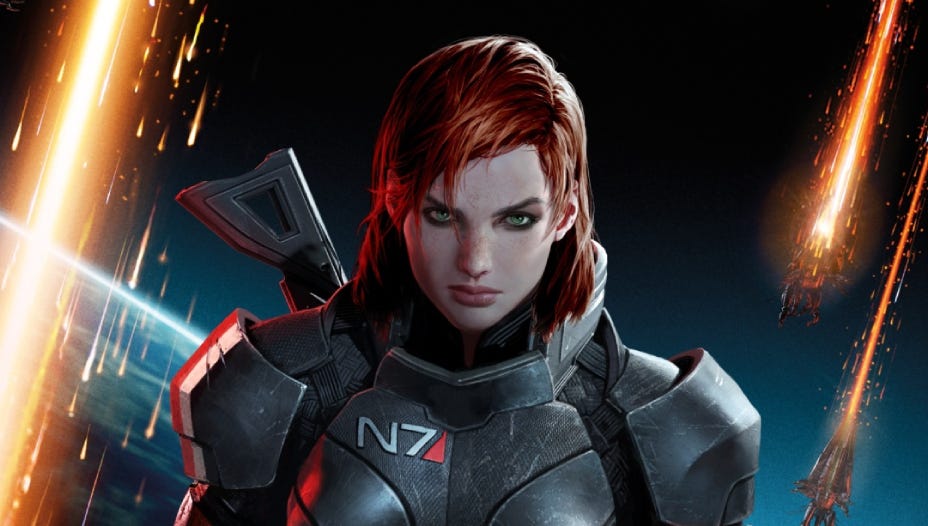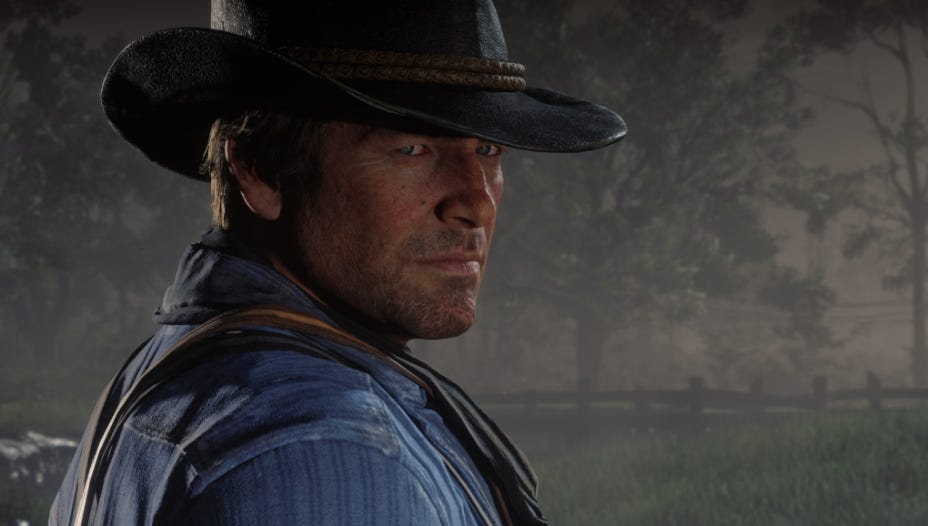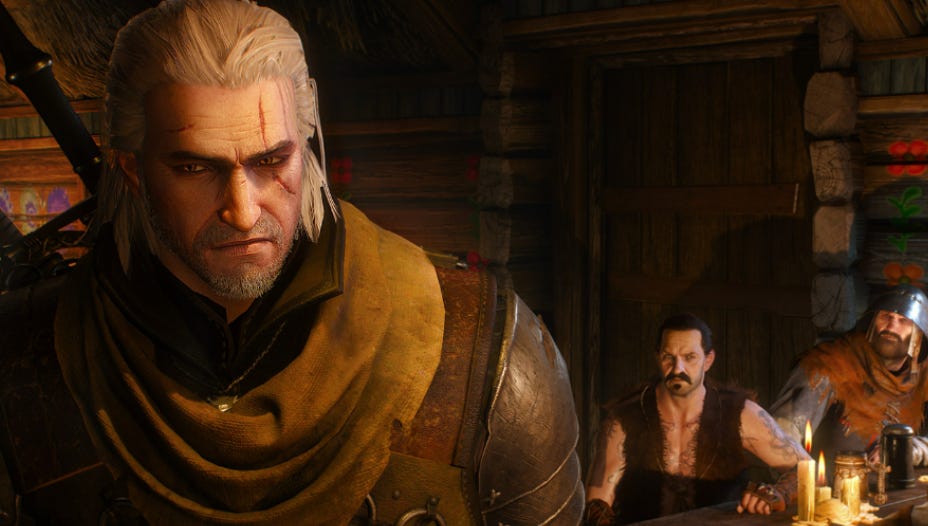3 Pillars of Compelling Game Characters
Proactivity, relatability & capability
Hey all,
Sorry for going radio silent last month; I’ve been busy trying to finish the demo of my game. But more on that later. Let’s start with today’s topic:
Sanderson’s Three Pillars of Compelling Characters
One of today’s greatest fantasy writers, Brandon Sanderson, shares his writing lessons on his YouTube channel. Although these lessons are focused on writing fantasy and science fiction novels, many of them can be adapted for games as well.
In his lesson about characters, he talks about the three key traits of compelling characters:
Proactivity
Relatability
Capability
Let’s take a closer look at these and explore how we can adapt them for games. Let’s go!
1. Proactivity
Brandon explains, "When we go into stories, we want to see progress.” So we naturally love the characters who move the story forward. A great game example of this is Commander Shepard from Mass Effect.
Right from the start, Shepard is a proactive character. In the first mission, when things go wrong on Eden Prime, Shepard takes immediate action—leading their squad and investigating the strange alien artifacts. Throughout the game, the player, as Shepard, is constantly making decisions, taking initiative, and pushing the story forward.
Even though players have control over Shepard’s choices, the character remains proactive because the narrative consistently frames them as someone who gets things done. Whether they’re paragon or renegade, Shepard is never a passive observer.
Question: Does the player character in your game move the story forward through their actions? What about NPCs? Are they passive observers, or do they actively engage with the plot?
2. Relatability
For players to bond with our characters, they need to be relatable in some way. There are many ways to earn the sympathy of the player, and one well-known technique is called Save the Cat. A screenwriting term coined by Blake Snyder, "Save the Cat" means having our character do something good at the beginning of the story to frame them as likable.
In Red Dead Redemption 2, one of the first things we do as Arthur Morgan is save Sadie Adler, a helpless woman who recently lost her husband, from a gang of outlaws. And that’s not the last “cat” we save. Then, we go on to save John Marston, a character we love from the first game. Within the first hour, Arthur has saved two people, showing that, even as an outlaw, he follows a moral code and will stand up for those he cares about.
"Save the Cat" doesn’t necessarily mean rescuing someone. It simply means having the character do something that makes them admirable, and helping the player form a bond with them.
Question: Does your character save a cat in the beginning of the story?
3. Capability
“We love reading about competent people doing things competently,” Brandon says. And as players, we love playing as competent characters in games. A great example of this is Geralt of Rivia from The Witcher series.
Geralt is a master witcher, and the game constantly reinforces his competence in monster hunting and solving problems. Whether he’s tracking monsters, brewing potions, or fighting (or playing gwent), Geralt is always portrayed as an expert in his field.
Wherever Geralt goes, people from his past remember his accomplishments. His reputation often precedes him, and by the time his name is mentioned, others usually already know it, reinforcing his competence.
Question: Is your character capable at what they do?
Final Words: Breaking the Rules
Creating an engaging character is an inherently creative process, and trying to fit it into rigid formulas can limit your imagination. Don’t be afraid to break the rules and turn them upside down! For more insights, check out Brandon’s full video.
Who’s your favorite game character and why? Drop a comment below.
You Might Also Like
Me
My game: The last few months have been spent adding content, polishing, and testing the demo of Herald of the Mists. And now, I’ve officially completed the demo! Depending on your choices, it takes around 1.5-2 hours to finish. All that’s left is to publish it, send emails to streamers, and hope that people will play and enjoy it. I’m planning to release the demo on Steam on March 21st. If you're interested, you can play the early version on Itch!
Playing: I’ve been playing Kingdom Come: Deliverance 2. Since the first one is one of my favorite games, it was hard to ignore the game and not play it until the demo was done. So far, it's been a lot of fun, though my only complain is that it feels much easier compared to the first one. We can talk about it in more detail once I finish it.
Reading: Pillars of the Earth by Ken Follett. I played the game adaptation many years ago. While the game itself didn't leave a huge impression on me, I still listen to its music. The book has been highly praised, so I decided to give it a read. So far, it’s been really good.
Listening:
Thanks for reading!
And that’s it from today’s issue of GameDev’s Journey. I hope you enjoyed it and found it useful. If you did, please like and leave a comment. Reach out for suggestions, objections, questions, or just say hi.
But regardless, thank you so much for reading, and have a great game dev journey!






Nice post and really cool soundtrack.
I'm not sure this applies universally in games (or maybe I need to spend more time thinking about my favorite video game stories now), but I will 100% agree that these are definitely winning traits that definitely help a character make a good impression. I definitely think that even if a character, especially a protagonist, doesn't meet all three, they NEED to be proactive, and have at least one of the other two.